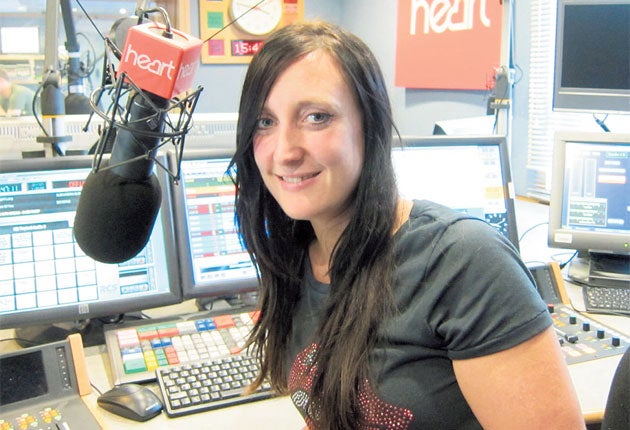The creative young minds making their voices heard
A Masters in radio production can thrust you straight into the front line of audio media. James Morrison tunes in

There can’t be many Masters courses that give you the chance to produce your own comedy or collaborate with Phill Jupitus on an online breakfast show.
But that’s what Mog McIntyre found himself doing after enrolling as a mature student on Bournemouth University’s MA in radio production.
At 27, having spent years marketing electrical goods, a stint on hospital radio was enough to convince McIntyre it was time to stop selling audio and learn to produce it. Barely 12 months later, his credits include a surreal sitcom featuring a cast of talking animals and a radio “comeback” spot for one of the most popular of BBC 6 Music’s original presenters.
“I got a buzz doing hospital radio, so I began researching courses. As soon as I saw the equipment and industry links they had at Bournemouth, and where previous graduates had found work, I realised this was the one,” he explains. “To be able to work with people as high profile as Phill is incredible. He’d been writing a book about breakfast radio and, as he hadn’t done much radio since leaving 6 Music three years ago, he wanted to do a breakfast slot again. So, for one week, he agreed to present a show on our course radio station, BIRSt [Bournemouth Internet Radio Station], and I produced it, which was the scariest experience. Working alongside him was like having a practical tutorial – I learnt so much.”
McIntyre quickly decided to use his MA experience to steer his incipient radio career towards entertainment. He followed this up with a placement at BBC Radio’s comedy unit, and has submitted a dissertation project consisting of a sitcom pilot starring an obsessive-compulsive warthog. But others have taken their Bournemouth training in very different directions.
Five years after graduating, Abbie Cunliffe, 30, has veered away from frontline production to become a commercial programmer for Global Radio, owner of the Heart and Galaxy networks. Cunliffe, who spends her days vetting scripts and brainstorming programme ideas, recalls: “In our third term, we were encouraged to go on placements, and I ended up working four days a week for talkSport. Because the course is so hands-on, you feel equipped to deal with things in real life. One day at talkSport, I was given 10 minutes to produce a script about the Michael Jackson trial. After taking a deep breath, I thought: ‘I can actually do this’.”
So, as it prepares to send its 10th batch of graduates out on to the airwaves, what does this £6,000 Masters course offer that others don’t? To its founder, the veteran BBC producer, Professor Sean Street, the formula for success is staying one step ahead of developments in a rapidly evolving industry. To this end, the course boasts an advisory board comprising key professionals, including Helen Boaden, director of BBC News, and holds regular sessions at which students take turns to pitch their programme concepts to commissioning editors and officials from the industry regulator, Ofcom. Then there is BIRSt, which, after 10 years as the MA’s online answer to Radio 4, has just obtained its first licence to play music.
“For a course like this to work, students must be involved in hands-on production from day one, which means running their own radio station. Right at the start, my feeling was that ours needed to be web-based, because of the direction things were starting to go,” says Street. “But 10 years ago, the idea of internet radio stations was pretty unusual. We were also trying something new by making our content available ‘on demand’ – again, that was clearly going to happen, but we did it long before BBC iPlayer.”
A decade on, and Bournemouth is still ahead of the curve. This year’s output has included everything from a 30-minute interactive crime drama with five alternative endings to a return to micro-level community broadcasting reminiscent of the home-grown “pirate” radio of old.
Lecturer Jo Tyler, whose industry credits include spells at BBC Radio 1, BBC Radio 2, and 6 Music, where she helped launch Jupitus’s breakfast show, explains: “With the consolidation going on in commercial networks and the editorial changes at the BBC, independent community stations are emerging to provide the kind of local coverage others aren’t. We’re developing close links with those in our area, and some of our students are already going out to work for them.”
For more information on the MA in radio production, visit www.bournemouth.ac.uk/courses/MARPRF
Join our commenting forum
Join thought-provoking conversations, follow other Independent readers and see their replies
Comments
Bookmark popover
Removed from bookmarks